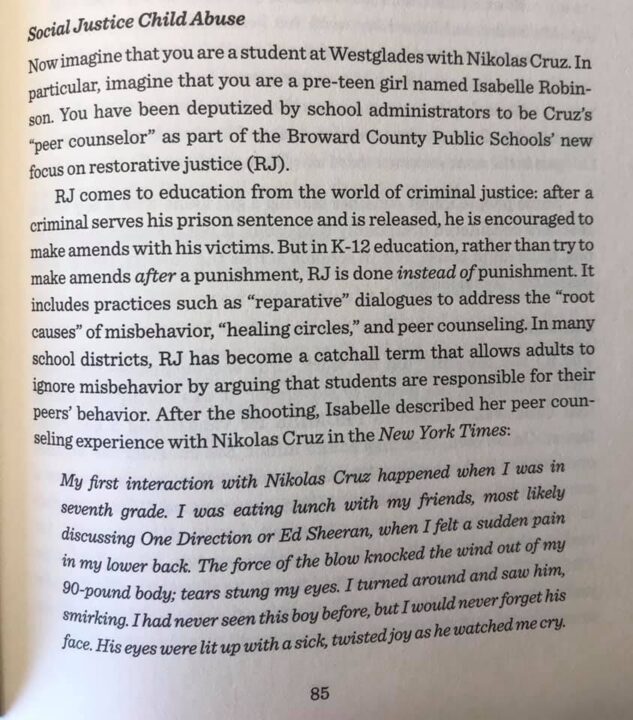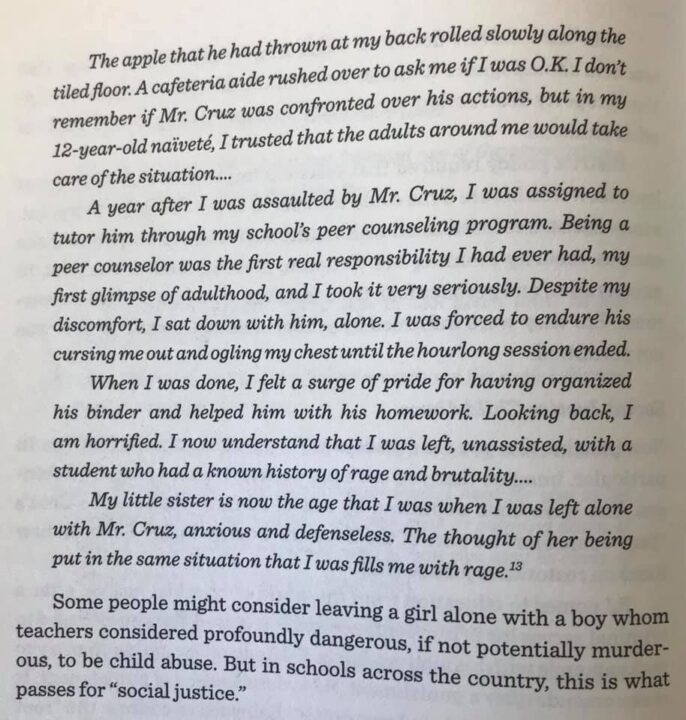Are your kids in danger by just attending school in New Hampshire? Schools across New Hampshire have begun implementing Social and Emotional Learning (SEL). According to the Rand Corporation:
“The reauthorization of the U.S. Elementary and Secondary Education Act, referred to as the Every Student Succeeds Act (ESSA), emphasizes evidence-based interventions while giving states and districts new flexibility on the use of federal funds, including funds that could be used to support social and emotional learning (SEL).”
Since then, vendors have flooded the education market with all kinds of SEL products available for purchase. School administrators are lining up looking for the best product to purchase to address the social and emotional needs of the students in their school district.
After the horrific school shootings, there has been enormous pressure on schools to take over the role of addressing the mental health of the students they serve. But is this a wise decision? The U.S. Secretary of Education, Betsy DeVos, recently said of the state of public education, “we’re in trouble.”
If public schools are struggling to teach children math, reading, science, and the other core subjects, how can we expect them to handle the sensitive issue of mental health?
How much more can the local public school do to raise America’s children? They are already dabbling in alcoholism, sex ed, drug use, and every other social ill. Have we put too much on the shoulders of school personnel and, should we put the mental health of children on their shoulders also?
Mental health problems in children are not new. School administrators have tried to tackle these issues in the past, but there can be problems when school personnel take on serious issues like depression, suicide, anxiety, anorexia, trauma, etc. There are many examples where children have been put in danger by well-meaning school personnel who’ve tried to address these pressing issues in the classroom.
One of the more dangerous examples happened at Columbine High School, the same school district where two students murdered 12 students and one teacher in 1999. Columbine offered a class on death education. In one report on 20/20, the focus on suicide prevention actually led one student to consider suicide.
This is why the idea of assessing or treating the mental health of students should be left up too educated and trained professionals. If a child has cancer, they need to be evaluated and treated by a medical doctor who specializes in childhood cancer. Some of these mental health issues are just as serious and require professional treatment. A child psychologist who specializes in assessing and treating children should be the one addressing the mental health of children. However, we are seeing this important duty placed on the shoulders of teachers, counselors, and even students. This is too important to get wrong.
In an article from The Laconia Daily Sun titled, “These kids look out for one another,” it was reported that students are going through six hours of training through the Connect Project to recognize signs of depression and suicide risk in fellow students.
Everyone wants to jump in and try to prevent suicide, but it was also reported that,
“This semester Gilford High is taking the principle of Connect a step further, training student counselors who will have office hours twice a week starting in December, for students who would rather speak to a peer. Student counselors learn active listening skills, how to set boundaries, the limits of confidentiality, and when it’s important to inform a grownup…”
Students who receive six hours of training are now going to address their peers’ mental health issues??
They list some of the issues teenagers are dealing with including,
“Depression, anxiety, trauma, substance abuse, eating disorders, maladaptive levels of perfectionism that increase feelings of stress and unworthiness, sexual assault and rape, and trauma and domestic violence at home. Those have all been shown to raise the suicide risk in children and teens, according to the National Association of School Psychologists and experts who study suicide.”
Children will now be counseled by their peers who have no professional education or training in the field of child psychology. Where could this end up? Is this as dangerous as it seems?
The Connect Project put forth by NAMI NH, appears to be trying to tackle the critical issue of teen suicide. Unfortunately, some of what they are doing is similar to what students were doing at Stoneman Douglas High School in Parkland, Florida. Where Nikolas Cruz killed 17 people and injured 17 others.
In the book, “Why Meadow Died” the people and policies that created the Parkland Shooter and Endanger America’s students,” the authors, one of whom is the father of Meadow, explains how policies led to the tragedy that took his daughter’s life. The excerpts below talk about how peer counseling was used on Nikolas Cruz and how that presented serious problems for one of the students who was counseling Cruz.
What kind of mental health evaluations will they be doing on children in New Hampshire’s schools? Who will be evaluating your child? What are their credentials? What, if any, ethical guidelines will they be required to follow? Who will have access to this personal and sensitive data collected on your child? Will you even know that your child is being assessed or treated for their mental health? What if something goes terribly wrong? Who will be accountable?
There are so many unanswered questions that need to be answered. NAMI-NH does not list any Ph.D. level Child Psychologists on their web site. Even if they did, it doesn’t appear as if they will be taking responsibility if something were to go horribly wrong. On their web site, there is a disclaimer that says, “Disclaimer: This website is not intended to be a substitute for a professional evaluation of any individual deemed to be suicidal. If you or someone you know is in crisis, go to Get Help.
What can go wrong? A lot. That’s why ir is so important that parents be aware of what is going on in their school district. Your child has a right to privacy. You have a right to informed consent. Every Student Succeeds Act SEC 4002 General Provisions (A) requires school districts to ….obtain prior written, informed consent from the parent of each child who is under 18 years of age to participate in any mental-health assessment or service…”
In the New Hampshire Department of Health and Human Services Medicaid to Schools Policy Guidance Medicaid to Schools Emergency Rule 2019. In order for schools to continue to be fully eligible to seek Medicaid reimbursement for services delivered by qualified treatment providers, this meant that individuals must be medical or behavioral health practitioners licensed and practicing within the scope of their board licensure. In the area of mental health, the professionals listed include; Psychologists licensed by the NH Board of Psychology, Psychiatrists, Licensed Clinical Social Workers, and Licensed alcohol and drug counselors and a maser of licensed alcohol and drug counselors. They do not list teachers, guidance counselors, or students.
It is important to make sure students are receiving mental health assessments and treatment from professionals, not from teachers, guidance counselors, or students who receive six hours of training. Suicide and other serious mental health problems need to be addressed by professionals who have the credentials to treat our children. If this is allowed to continue, I fear what can happen to students who attend New Hampshire’s public schools.


